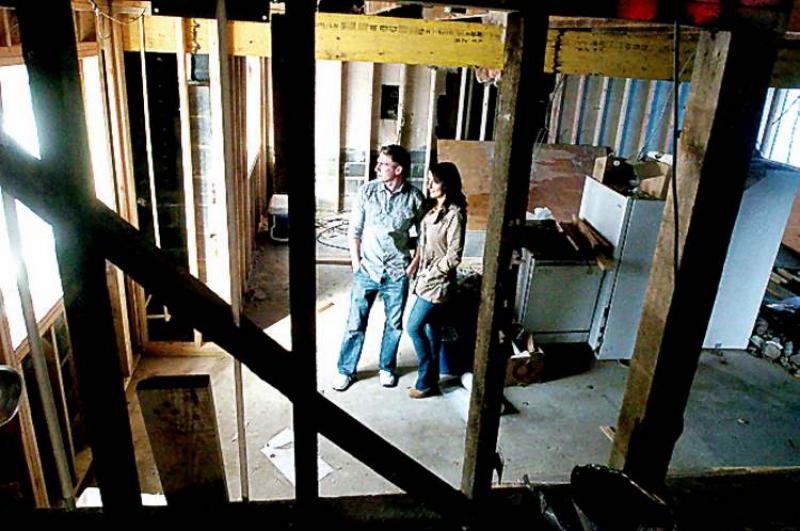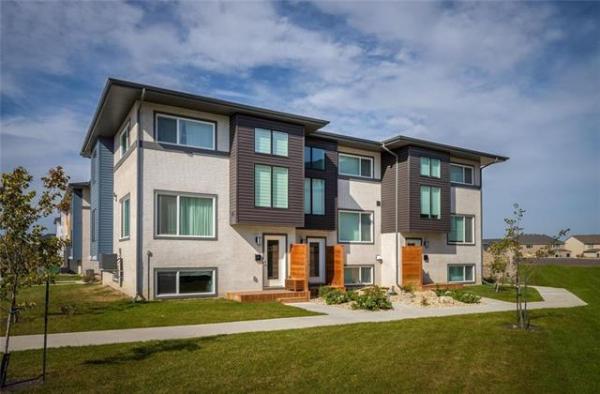YOU'VE heard me talk about why getting municipal building permits is a good idea when undertaking a reno project. There are also a few other less obvious reasons why building permits work to protect you, but not many people think to use this information to their advantage.
Building permits are an official record that a renovation has been conducted and checked to be safe and sound. If you are thinking about purchasing an existing home, you typically pay to get a home inspection, and pay a lawyer to check that the land title is clear. But hardly anyone checks with the municipal building department to find out if there has been building permits taken out in the past.
Why is this important to check? It demonstrates that the alterations -- if any -- were done correctly. If the house in question has had major renovations done in the past couple of decades -- things like a bathroom added or moved, a second storey added, an addition built on, structural walls removed or basement walls underpinned -- then there should be a record at the building department that shows permits were taken out.
And just as important, it will show that those permits were signed off on by a building inspector and were officially closed -- that's a big deal.
So let's say the house up for sale has had an addition put on around 15 years ago and your home inspector gives the house a favourable report. You still need to check the permit history because the inspector cannot visually check on important aspects of the renovation buried underground. Things like: does the foundation have proper footings? Does it have connected weeping tile? Does the new foundation tie into the old foundation properly? Even the most thorough home inspection can leave many questions about a renovation unanswered.
One phone call to a building department can save you from gambling on your biggest investment. If the answer comes back that the building department has no record of any permits taken out, my advice to you is to reconsider the purchase, or at the very least insist on a more comprehensive evaluation by a residential structural engineer before any deal is signed.
One situation that I get letters about time and again is from homeowners who have recently purchased a house. The typical scenario is that the home was renovated before being put on the market. The new buyers didn't think to check the building permit history, and now six months after moving in they get a call from a government building inspector inquiring why the building permits taken out by the last owner were never closed, and the final inspections were never performed.
The current homeowner is now legally obligated to ensure the permits are closed. This can mean having to tear out the drywall and other finishing layers to allow the building inspectors to do their job. It can be a costly undertaking. Once again, a simple phone call could have alerted the buyers that the renovations still had open permits and they could have avoided this house purchase or renegotiated the asking price based on the future costs of closing the permits.
Building permits are also there to cover your butt in the event of an insurance claim. In some cases, the absence of building permits on a project can work against you. For example, in the event of house damage caused by an electrical fire the building permit records will be checked. If there were no permits taken out that's a huge problem.
You need to consider the worst-case scenarios and the repercussions. In the event of an electrical fire caused by faulty workmanship, the investigation by the Fire Marshall's Office and your insurance company will focus on the probable cause. If you have undertaken a renovation without permits, and the work was done by an unlicensed electrician and not checked by the Electrical Safety Authority, the ultimate blame for the fire will be on you, the homeowner.
We all have home insurance to protect us during times of disaster, but do not test the limits of the fine print by having fingers pointed at you for not doing due diligence.
The moral of this story is building permits can work for you when you have them, and can work against you if you don't. They can also help you to make better informed decisions at the time of buying a home with major alterations.
Making a call to your municipal building department might be the call that saves your bacon. Your newly renovated purchase means nothing if there is an absence of permits, or still has permits open.
Real estate agents and lawyers are not obligated to check this information on your behalf. It's up to you to obtain and use the documentation the building department will provide to make the most informed decision you can when buying a house. A lack of permits speaks volumes about a renovation, just as a record of closed permits says peace of mind.
-- Postmedia News
Catch Mike in his new series, Holmes Inspection, airing Thursdays at 8 p.m. ET/PT on HGTV. For more information, visit www.hgtv.ca. For more information on home renovations, visit makeitright.ca




